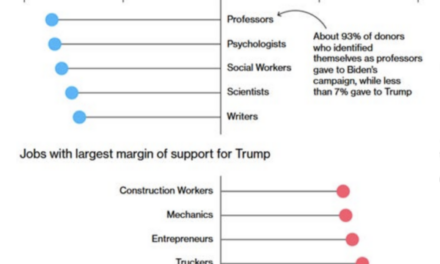We support our Publishers and Content Creators. You can view this story on their website by CLICKING HERE.
This past Thursday I watched Fulton County District Attorney Fani Willis testify at the the hearing to disqualify her and her former lover from prosecuting President Trump and the other defendants in her “conspiracy so immense” RICO case. Willis was a wild witness. Her testimony was bizarre on its own terms. She also lashed out as though no rules of evidence applied to her testimony. She turned her appearance into a free-for-all. Judge Scott McAfee tried to rein her in and make her behave, but he was not equal to the task. He didn’t have his heart in it.
For me the scene triggered the memory of a day I spent in court long ago watching an obscenity trial. The year was 1967. The case had been brought, as I recall, by the Ramsey County Attorney against the local St. Paul Shinders store (newspapers, books, comics, sport cards). Shinders was charged with selling a book in violation of Minnesota’s obscenity law.
I was 16 at the time and an ardent First Amendment absolutist. A frequent patron of its downtown St. Paul and Minneapolis stores, I loved Shinders for the wide range of paperback books it offered. I attended the trial on a day off from school to express my support.
Ramsey County District Judge Stephen Maxwell was presiding. On the day I attended the prosecutor was having the book read into evidence from the witness stand. I have a vivid memory of Judge Maxwell grimacing at parts of the book that depicted aberrant practices.
During the morning break I approached the Shinders manager who was in court representing the company along with the store’s attorney. I chatted with both of them about the case. The Shinders attorney asked me if I would be willing to testify. I thought he wanted my expert testimony on pornography and/or the First Amendment. (That’s a joke.) I don’t recall what he actually had in mind.
Seeing us speaking, the prosecutor had a subpoena drawn up and served on me. He seemed to think Shinders was peddling its wares to a minor in court and that my conversation with the manager aggravated its criminal misconduct.
The subpoena on me roiled the Shinders lawyer. He took me to the cigarette machine down in the basement of the courthouse and gave me 45 cents to buy a pack. Once I had done so, he took me up to the prosecutor’s office to file a charge against the county for selling cigarettes to a minor. I had no idea what was going on, but the story made the St. Paul Pioneer Press the day after with a little help from the lawyer.
To my disappointment, I was never called to testify. I don’t recall the case ever going to verdict, though I may be mistaken about that.
When I later learned the law of evidence I came to understand that certain rules applied. Testimony is subject to limitations of knowledge, expertise, and relevance. In retrospect, I saw that I had no admissible testimony to offer in the case against Shinders.
The law of evidence should have excluded Fani Willis’s extraneous sociological observations and other exclamations in the course of her testimony, but Judge McAfee let it ride. The law of evidence applies in theory. The judge has to enforce it. Willis’s testimony represents what you can get away with when the rules are relaxed and the law held in abeyance.
Judge Maxwell had a consequential career before his appointment to the bench as Minnesota’s first black district judge (Pioneer Press obituary here). He served in the Coast Guard and Navy during World War II, reaching the rank of Captain. In 1966 he ran a surprisingly close race for Congress as a Republican in Minnesota’s heavily Democratic Fourth Congressional District (St. Paul and suburbs). As an assistant Ramsey County Attorney himself, he helped convict attorney T. Eugene Thompson for the murder of his wife in one of the most highly publicized local cases of the 1960s.
Judge Maxwell ran a tight ship in his courtroom. The prosecution and defense lawyers before him in the Shinders case knew better than to use me as a farcical bit player before him in court that day. That’s why I escaped without further embarrassment. Fani Willis, not so much.

 Conservative
Conservative  Search
Search Trending
Trending Current News
Current News 





